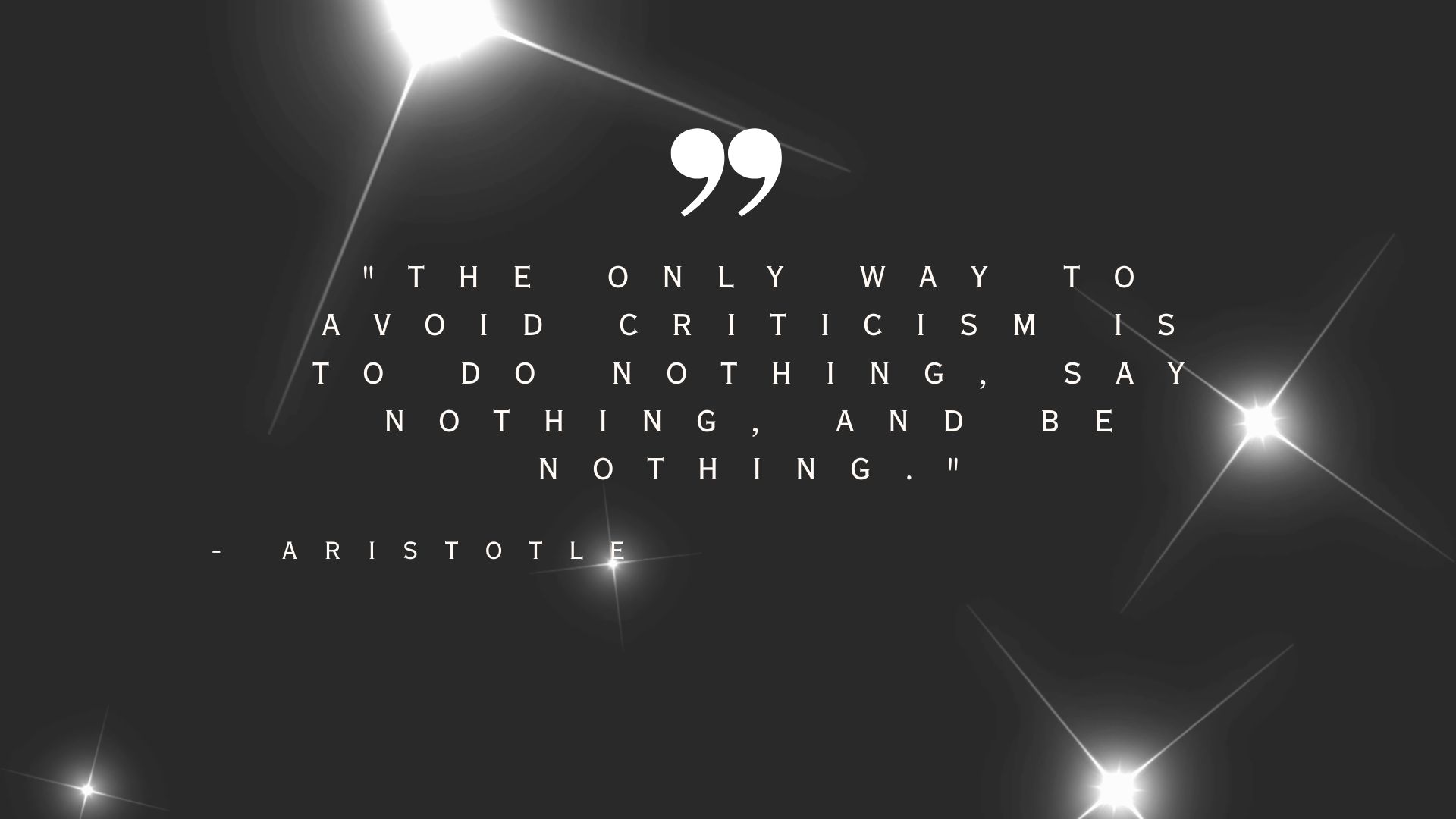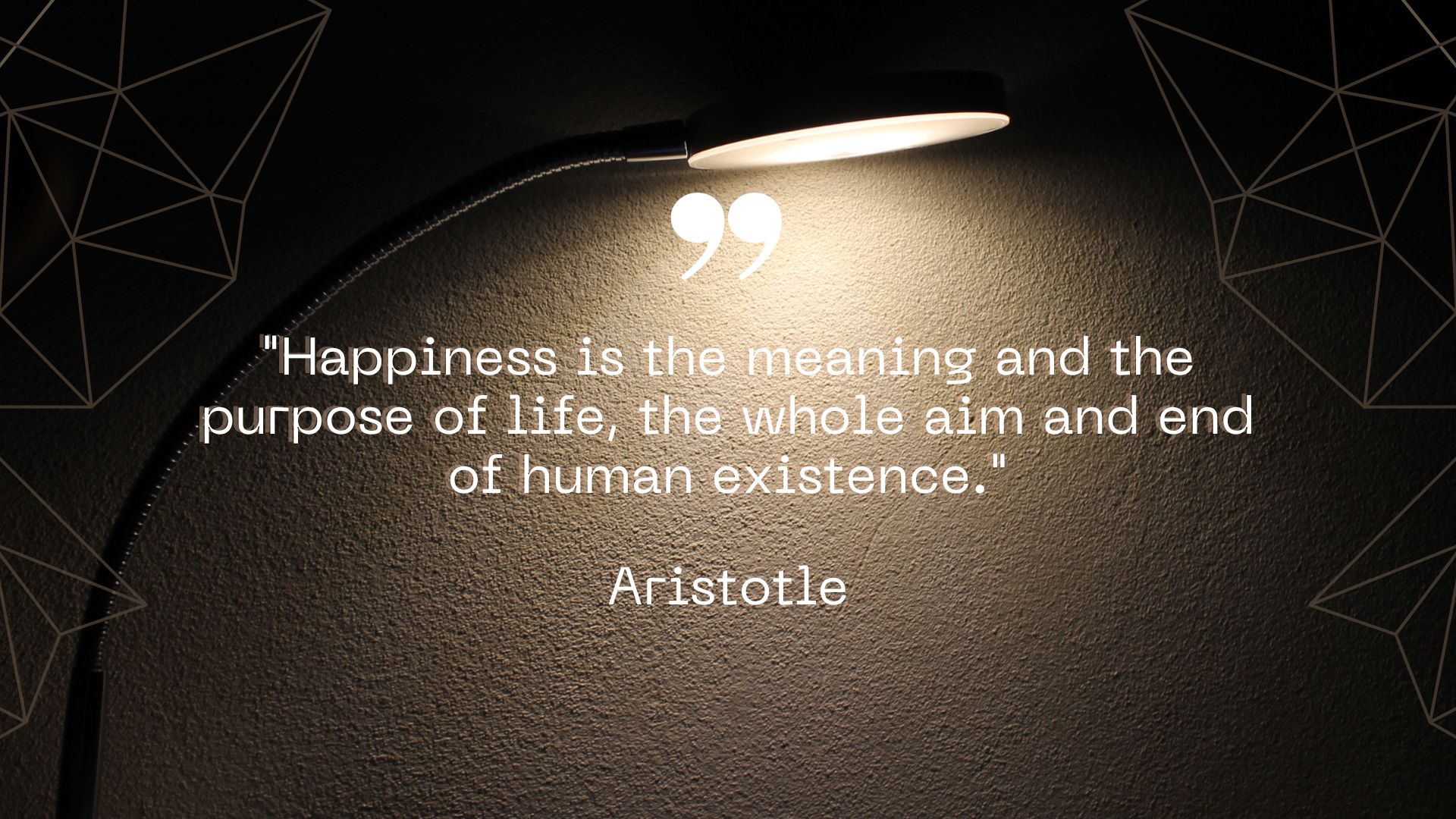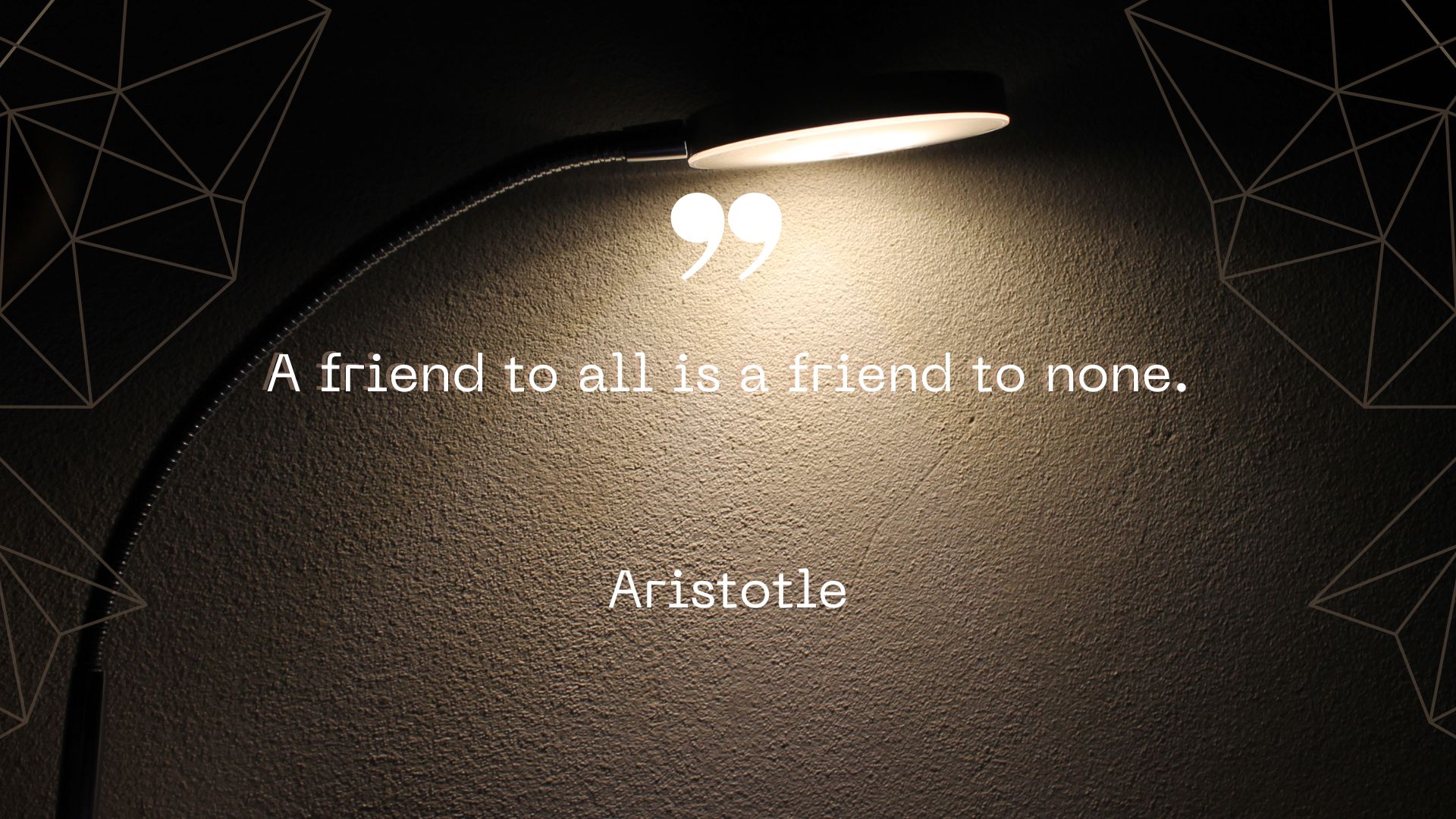“The only way to avoid criticism is to do nothing, say nothing, and be nothing.”
Aristotle—
Aristotle, one of the greatest philosophers of all time, once proclaimed, “The only way to avoid criticism is to do nothing, say nothing, and be nothing.” This timeless quote encapsulates a profound insight into human nature and the challenges of pursuing personal and intellectual growth. In this explanation, we will delve into the layers of meaning behind Aristotle’s words, shedding light on why criticism is inevitable for those who strive to achieve, create, and make a meaningful impact in the world.
- The Nature of Criticism: Criticism is an integral part of human interactions and progress. It involves the evaluation and analysis of actions, ideas, and behaviors, often with the intention of identifying areas for improvement. In Aristotle’s perspective, criticism is not merely a negative judgment, but a reflection of engagement and interaction with the world.
- The Price of Inaction: Aristotle’s quote underscores the reality that to avoid criticism entirely, one must choose a life of passivity and stagnation. By refraining from taking action, expressing opinions, or pursuing one’s aspirations, an individual might shield themselves from criticism, but at the cost of personal growth, self-discovery, and potential achievements.
- Embracing Courage and Ambition: Criticism often arises when individuals step out of their comfort zones, challenge norms, and strive for excellence. Aristotle’s insight encourages us to embrace courage and ambition despite the inevitable critique. Ambitious pursuits, whether in the realm of art, science, or personal development, inherently invite scrutiny and differing viewpoints.
- Contribution to Society: Progress and innovation emerge from the exchange of ideas and the willingness to question prevailing beliefs. To contribute meaningfully to society, it is essential to share one’s thoughts, engage in discussions, and put forward novel concepts. Aristotle’s quote emphasizes the significance of active participation in the intellectual and social discourse.
- Resilience and Learning: Criticism, though often uncomfortable, provides valuable opportunities for growth and learning. Constructive criticism can offer insights into areas for improvement, encouraging individuals to refine their skills, perspectives, and approaches. Resilience in the face of criticism fosters adaptability and a commitment to continuous self-improvement.
- Cultivating a Balanced Perspective: While Aristotle acknowledges the inevitability of criticism, he doesn’t suggest that every form of critique is valid or constructive. Individuals must learn to discern between well-intentioned feedback and baseless negativity. This discernment allows for the cultivation of a balanced perspective, helping individuals extract value from criticism while remaining true to their principles.
Conclusion:
Aristotle’s quote, “The only way to avoid criticism is to do nothing, say nothing, and be nothing,” serves as a reminder that a life devoid of criticism is a life devoid of action, growth, and contribution. Embracing criticism as an inherent part of the journey toward self-improvement and meaningful impact empowers individuals to transcend their limitations, learn from experiences, and leave a lasting legacy.




